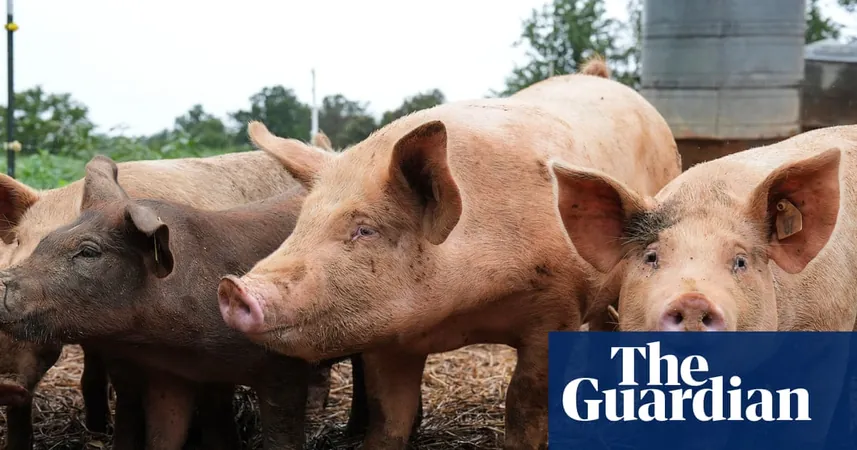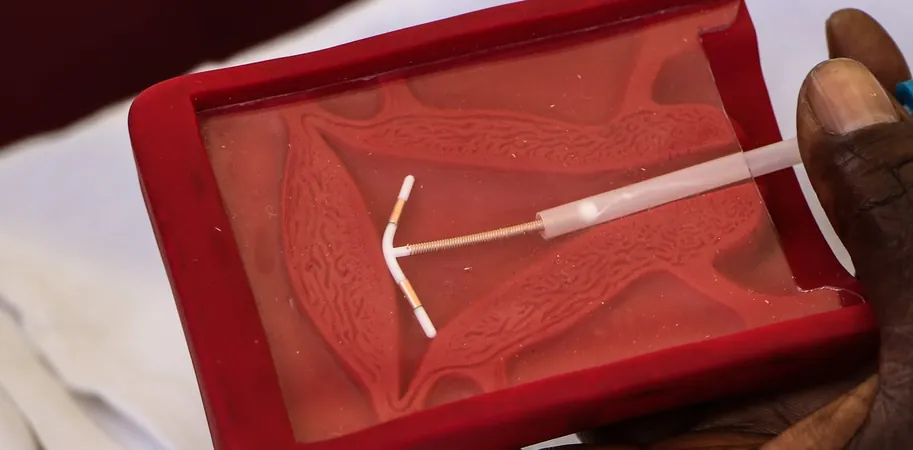
Revolutionary First: Pig Lung Successfully Transplanted into Brain-Dead Human
2025-08-25
Author: Olivia
A Groundbreaking Milestone in Transplantation
In a stunning advancement in medical science, surgeons have successfully transplanted a lung from a genetically modified pig into the body of a brain-dead human. This pioneering procedure, which has never been attempted before, saw the transplanted lung function for an impressive nine days.
Addressing the Organ Shortage Crisis
This remarkable feat is part of an ongoing effort known as xenotransplantation, a promising solution to the global organ shortage crisis. According to the World Health Organization, a staggering 90% of the need for transplants goes unmet, highlighting the urgency for innovative solutions.
Experts Caution Against Overoptimism
While the news is exciting, experts urge caution. Dr. Justin Chan from NYU Langone Transplant Institute remarked that although the study is promising, it involved only one patient and should be viewed as a 'qualified success.' He emphasized that 'these lungs are not able to independently sustain a patient' yet.
Incremental Progress in a Complex Field
Andrew Fisher, a respiratory transplant professor at Newcastle University, echoed these sentiments, stating, 'This work is very welcome in furthering our understanding, but it marks an incremental step forward.' Succeeding in lung xenotransplantation is particularly complex due to the lungs’ exposure to external pollutants and infections.
The Mechanics Behind the Transplantation
The groundbreaking transplantation involved utilizing a left lung from a Chinese Bama Xiang pig, which was genetically modified prior to the procedure. Researchers discovered that the lung remained viable for 216 hours without triggering a hyperacute rejection or showing signs of infection initially.
Challenges Arise Post-Transplantation
However, complications soon emerged. After just 24 hours, the lung showed signs of fluid buildup and damage stemming from inflammation triggered during the transplant process. Despite the recipient receiving strong immunosuppressants, the lung faced ongoing attacks from the body's antibodies.
Navigating Delicate Balances in Immune Response
Experts highlighted the challenges posed by the immune response in lung transplants. Fisher explained, 'The immune system in the lung is very sensitive and very active,' complicating attempts to manage the rejection of transplanted organs.
Looking Ahead: The Future of Organ Transplantation
The researchers behind this daring procedure call for ongoing refinements in their approach, emphasizing the need to enhance immunosuppressive regimens, improve genetic modifications, and develop better lung preservation methods. Prof. Peter Friend from the University of Oxford adds that alternative strategies, like remodeling donor organs with stem cells or growing humanized organs in pigs or sheep, are also being explored.
Hope on the Horizon for Organ Availability
Fisher suggests that while xenotransplantation for lungs holds great promise, another avenue of exploration is to improve the viability of human donor lungs that are currently deemed unsuitable for transplantation. 'If we get that right, that’s something that can be implemented within months,' he asserts, indicating that significant changes could be just around the corner.









 Brasil (PT)
Brasil (PT)
 Canada (EN)
Canada (EN)
 Chile (ES)
Chile (ES)
 Česko (CS)
Česko (CS)
 대한민국 (KO)
대한민국 (KO)
 España (ES)
España (ES)
 France (FR)
France (FR)
 Hong Kong (EN)
Hong Kong (EN)
 Italia (IT)
Italia (IT)
 日本 (JA)
日本 (JA)
 Magyarország (HU)
Magyarország (HU)
 Norge (NO)
Norge (NO)
 Polska (PL)
Polska (PL)
 Schweiz (DE)
Schweiz (DE)
 Singapore (EN)
Singapore (EN)
 Sverige (SV)
Sverige (SV)
 Suomi (FI)
Suomi (FI)
 Türkiye (TR)
Türkiye (TR)
 الإمارات العربية المتحدة (AR)
الإمارات العربية المتحدة (AR)